Can Nurses Have Tattoos: A Complete Guide
Discover if your passion for this stunning body art might affect your nursing career.

Image: Shutterstock
Picture a busy hospital scene and a nurse with a vibrant arm tattoo peeking out from under her scrubs. A pretty cool sight, right? While tattoos have moved on from their once-unconventional status to a popular form of self-expression, identity, and personal beliefs in several traditional professions, can nurses have tattoos or not is still a heavily debated topic in the medical community. Since the rules about tattoos in this field are still a mystery to many, most people think it is. But fret not. In this article, we will learn whether or not you can have a tattoo while pursuing your career as a nurse in the healthcare field and more. Scroll down to know more!
In This Article
Can Nurses Have Tattoos?

The short answer is yes! Small tattoos are generally accepted in the nursing profession. However, this may also depend on the policies of the healthcare facility or organization you decide to work with. Some healthcare institutions may have strict dress code policies that include tattoos. For instance, you may need to cover your tattoos while on duty with the help of clothing or makeup. Other facilities may have more relaxed policies about them.
Another important factor to consider is their placement and size. Can nurses have tattoos on their arms, neck, or any visible body part? Find out below.
- Can Nurses Have Hand Tattoos: Since hand tattoos are more visible, whether or not you can have them depends on the organization you are working for. If it is not a tattoo-friendly facility, you may have to look for ways to cover them.
- Can Nurses Have Neck Tattoos: Neck tattoos are another visible form of body art. A small tattoo that can be easily covered may be acceptable. However, you may have to check your hospital’s policies for larger ones.
- Can Nurses Have Wrist Tattoos: A small wrist tattoo is unlikely to disqualify you from working as a nurse. However, check your facility’s protocol to learn more about it.
- Can Nurses Have Face Tattoos: While there is no official rule about having face tattoos as nurses, most employers consider it unprofessional. You may have to use a face mask or makeup to cover it up.
Tattoos in nursing can symbolize personal beliefs, milestones, or even aspects of a nurse’s career, such as nurse tattoos representing compassion or strength.
A survey conducted on 2224 adults in Great Britain found 23% of doctors and nurses thought it was acceptable to have face or neck tattoos, while 34% thought it was not acceptable to have any visible tattoos.
 Did You Know?
Did You Know?The major dilemma about whether or not nurses should get inked is the confusion behind the official tattoo rules for nurses. Find out more in the next section.
Key Takeaways
- Nurses may have tattoos, as there are no federal laws against them. However, a healthcare facility’s policies will determine whether or not you can display visible tattoos.
- Nurses with tattoos may build great rapport with patients and colleagues due to their shared interests in tattoos.
- They may also face potential bias from their seniors, which may limit their career opportunities.
- You may use concealers or compressions bandages to cover visible tattoos in healthcare facilities where you are required to them during work.
Healthcare Tattoo Rules For Nurses

There are no federal rules or regulations regarding tattoos for nurses. A telephone survey was conducted on 15 hospitals to learn about their existing policies about tattoos for nurses. It was observed that out of the 86% of hospitals that responded, none of them could explain why they had rules about body art for their nurses. Further, they could not provide any reasons or references to support their current policies. The study concluded that due to the lack of widely available information, each hospital had the responsibility to determine its own set of rules (1).
While tattoo rules for nurses may vary widely, here are some general considerations you may keep in mind:
- Check Your Institution’s Policies
Hospitals and healthcare facilities often have strict policies regarding visible tattoos. For instance, they may ask you to cover your visible tattoos using medical tapes. Therefore, check with the institution where you work or plan to work to understand their rules.
- Ensure You Can Cover Your Tattoos
As said in the previous point, your hospital may ask you to cover your tattoos. Therefore, ensure that you get a small tattoo in a place where it can be concealed easily.
- Avoid Inappropriate And Offensive Tattoos
Even if your healthcare organization has no strict rules against tattoos, they may have a problem with explicit or inappropriate content about a specific gender, race, or religion. Instead, opt for tattoos that are professional and not offensive for a healthcare setting.
- Consider Hand Hygiene
It is essential for people in healthcare to follow strict hand hygiene protocols. If your organization requires you to cover your hand and wrist tattoos using medical tape or makeup, you may have to do it every time you wash your hands. Therefore, it is recommended that you reconsider your tattoo placement.
It is important to note that what might be acceptable in one healthcare setting may not be in another. Therefore, always check with your current employer for their policies regarding tattoos for nurses.
Following the general tips mentioned above may help you navigate your career in a healthcare facility smoothly. But just like any profession, having tattoos as a nurse comes with their set of pros and cons. Find out more in the next section.
Pros And Cons Of Having Tattoos As A Nurse
It is important to understand the positive and negative aspects of being inked before joining the healthcare facility of your choice. Here are the following pros and cons to keep in mind:
Pros
- May Help You Express Yourself
Tattoos are a great way of expressing your personality and individuality. You may get a tattoo with great cultural significance to help stay connected to your heritage or family. You may also get tattoos to signify important life events or people in your life.
Sean Dent, a nurse practitioner, shared how he felt about having a tattoo as a healthcare provider. He wrote, “I don’t feel it makes me any less of a professional. It doesn’t diminish the quality, nor nullify the work I do. It’s simply an expression of me. Each tattoo represents something in my life (i).”
- May Promote Connection With Patients
There are chances that one of your patients may find your tattoo interesting or relatable, which may help build rapport between you and the patient.
- May Promote Team Building
Your colleagues may also take interest in your tattoos, making them excellent conversation starters. This can help you bond well with others at work who share similar interests and experiences.
- May Increase Job Satisfaction
Since tattoos are an outlet for personal and artistic expression, they may help you feel more comfortable and authentic. This can make you happy and relaxed and help you perform better in your career in nursing
Many nurses choose tattoos related to their job to mark the nobility of the profession, such as medical tattoos. These tattoos sometimes become a symbol of who you are and serve a practical, life-saving purpose, showing your association and reverence for the noble profession you are in.
Cons
- May Be Considered Unprofessional
As mentioned earlier, some healthcare institutions may not allow tattoos for nurses, especially visible ones. This may potentially affect your career advancement options and opportunities.
- May Affect Your Image Among Patients
While some patients may not have an issue with their nurse having tattoos, others may not be very open to them. A study evaluating the patients’ perceptions of patient care providers with tattoos found that patients considered them to be less approachable, reliable, professional, attentive, efficient, or cooperative. It was further seen that tattooed female providers were considered less professional than their male counterparts (2).
- May Lead To Potential Bias
The bias towards tattooed nurses mentioned in the previous points is not just limited to patients. Sometimes, this may also come from colleagues and superiors, which may affect your career growth.
- May Cause Inconvenience
If your healthcare facility requires you to cover your tattoos while on duty, you may have to find ways to do so. This may be very inconvenient for some, who may consider tattoo removal options. However, they are painful, complicated, and not always successful.
The policies of a healthcare facility may require a nurse to cover up their tattoos for a more professional look. Here are some easy tips to cover them in the section below.
How To Cover Up Your Tattoo As A Nurse?
Some healthcare institutions may require you to cover up your tattoos during work. Here are some simple ways to conceal them effortlessly:
- Choose Your Uniform Wisely

Opt for long-sleeved uniforms instead of half-sleeved ones to conceal tattoos on your arms and back. But if you have one on your neck, collarbone, or upper chest area, high-necked scrubs or blouses may be great options for you.
- Invest In Makeup
You may use tattoo cover-up makeup to conceal your tattoos when clothes cannot. If you cannot get your hands on it, you may also use your regular full-coverage concealer. Choose a shade that closely matches your skin tone and opt for waterproof makeup for warmer months. Also, ensure that you set your concealer with translucent powder to prevent smudging throughout your shift.
 Quick Tip
Quick Tip- Use Compression Sleeves or Bandages
If long-sleeved shirts or makeup are not your thing, you may look for custom compression sleeves. These help cover the tattoos while providing a professional appearance. But if you have a small tattoo, you may use a skin-colored bandage or medical tape to conceal it.
“Can nurses have tattoos?” is a heavily discussed topic in the medical community. While there are no fixed federal laws about this, people have differing views on it. Some are supportive of professionals having tattoos, while others are against it. Despite this, whether or not you can actually flaunt your tattoo during your shifts depends on the organization you work for. Some may be open to visible tattoos, while others may require you to conceal it during work. If you happen to work for a medical facility that follows the latter, you may either wear makeup or use long-sleeved uniforms or compression bandages to cover your inked skin.
Frequently Asked Questions
Are there specific nursing specialties where tattoos are more accepted?
Yes, certain nursing fields like mental health or community care may be more open to visible tattoos. However, roles involving direct patient care, like pediatrics or surgery, might have stricter policies. Check your workplace guidelines to be sure.
Do tattoo policies change over time in the healthcare industry?
Yes, policies on tattoos may change over time in the healthcare industry as hospitals set their own guidelines for them. While some may become more accepting of visible tattoos, others may want you to conceal them. Therefore, always stay informed about your workplace’s specific policies regarding tattoos and recheck them from time to time for any changes.
Can nurses with tattoos work in specialized areas like pediatrics or maternity?
Yes, nurses with tattoos may work in specialized areas like pediatrics or maternity. However, this depends on the policies of the healthcare institution they wish to work for. Some institutions may have restrictions regarding visible tattoos for medical professionals, while others may be more lenient. Always check the hospital policies before applying for a position there.
If you have tattoos and are looking for a career in the nursing field, then this video is for you! Check it out for important information to keep in mind when applying for a nursing program.
Personal Experience: Source
StyleCraze's articles are interwoven with authentic personal narratives that provide depth and resonance to our content. Below are the sources of the personal accounts referenced in this article.
(i) I am a tattooed nursehttps://seandent.wordpress.com/2019/01/23/i-am-a-tattoed-nurse/
References
Articles on StyleCraze are backed by verified information from peer-reviewed and academic research papers, reputed organizations, research institutions, and medical associations to ensure accuracy and relevance. Read our editorial policy to learn more.
- Developing a nursing personnel policy to address body art using an evidence-based model
https://pubmed.ncbi.nlm.nih.gov/20540462/ - Patients’ perceptions of patient care providers with tattoos and/or body piercings
https://pubmed.ncbi.nlm.nih.gov/22361873/
Read full bio of Sue Murphy
Read full bio of Joyce Joyson
Read full bio of Eshna Das
Read full bio of Aparna Harry








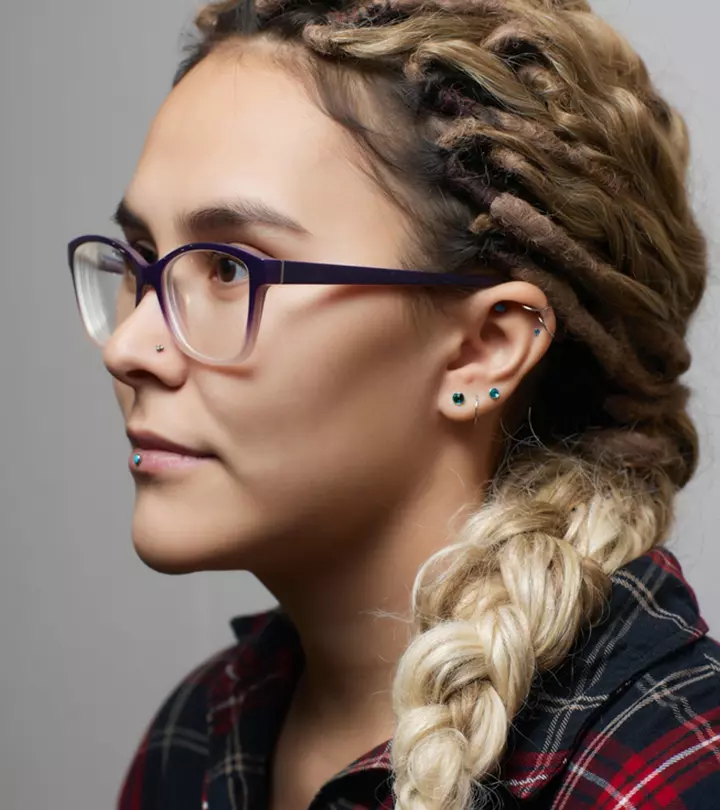
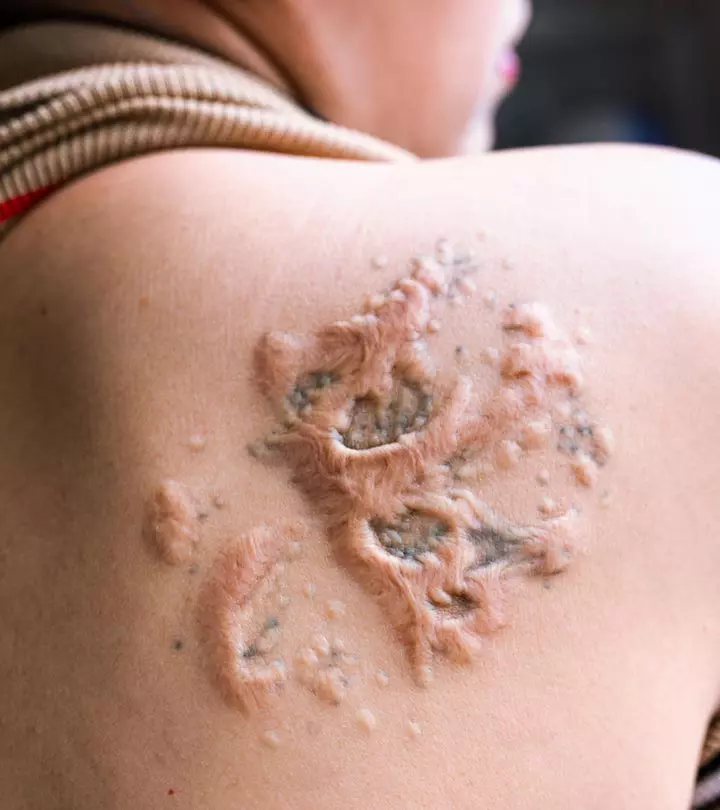

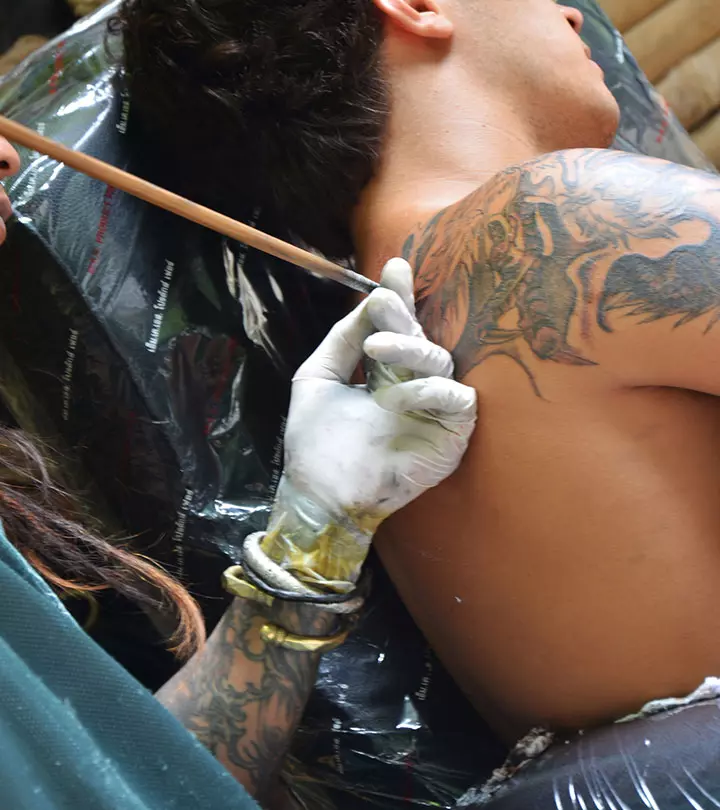



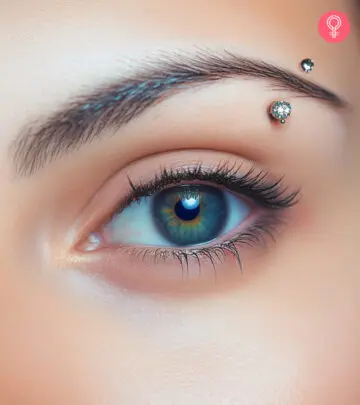







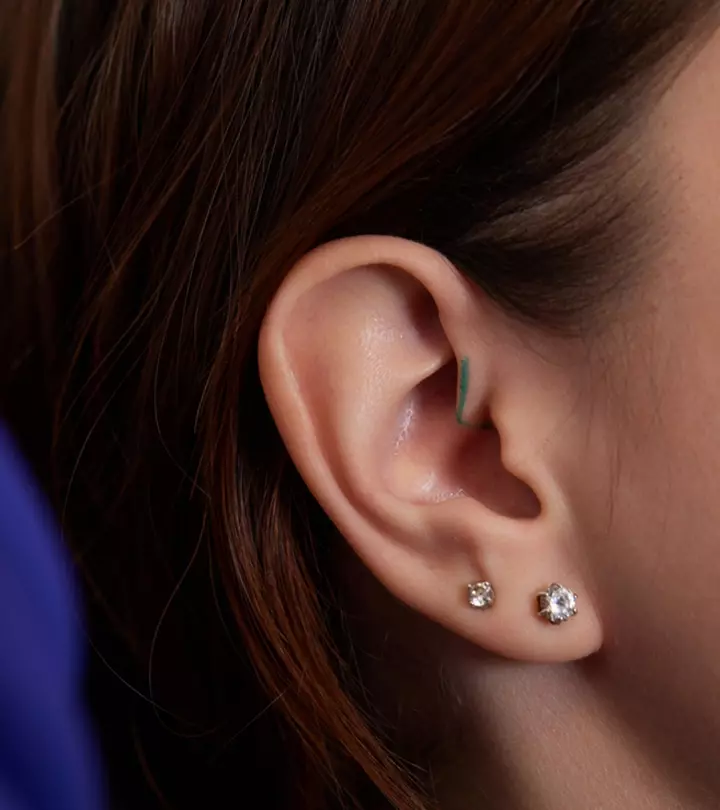



Community Experiences
Join the conversation and become a part of our empowering community! Share your stories, experiences, and insights to connect with other beauty, lifestyle, and health enthusiasts.